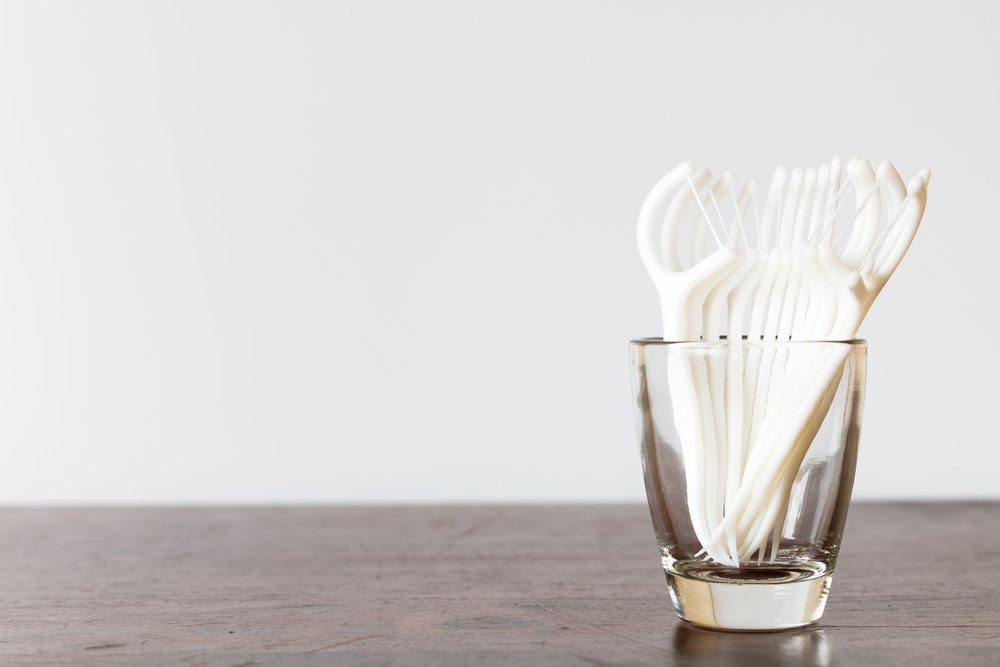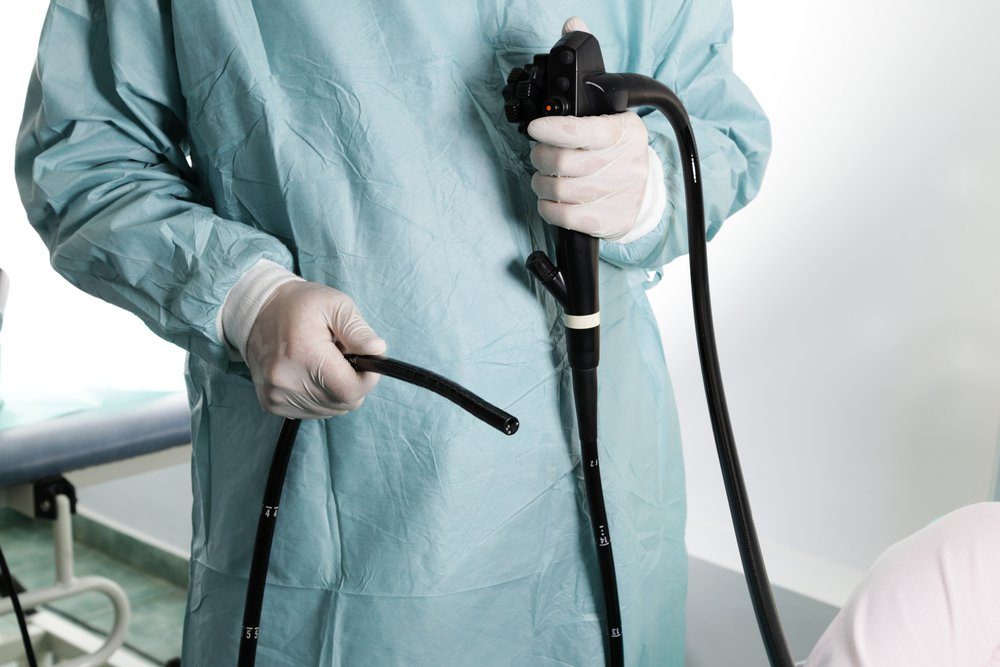
Start flossing
Seriously, brushing just isn’t enough. Here’s how to prove it to yourself—eat some popcorn and brush your teeth. Think you brushed all the particles away? Grab some floss and get between each tooth. Did you miss some spots while brushing? Just think of those particles sitting there, day after day, rotting in in your teeth and gums. That bacteria inflame your gums, which can pull away from the tooth causing pockets and more places for leftover food to hang out. Besides potential tooth and bone loss, your heart will pay the price as the bacteria find their way to your arteries causing plaque, more inflammation which causes arteries to narrow. Gerontologist Dr. Michael Roizen told Reader’s Digest daily flossing can add 6.4 years to your life.

Take a naked selfie every month
Passcodes on smartphones are annoying, but if that’s what it takes to store nudes on your phone to save your life, it’s well worth it. Melanoma kills more than 9,000 people each year, according to the Skin Cancer Foundation, and one surefire way to lower your risk is to do a monthly self-check for new moles or moles that change in appearance. This is why a monthly selfie is essential. Who can remember from month to month if a mole changed in appearance or if the lesion you noticed last month grew or disappeared?
Here are more skin changes that could signify a serious health problem.

Become a pet parent
If you’ve been weighing the pros and cons of adopting a pet, you might want to resolve to do it this year because a fur-baby could help you live longer. A study showed dog owners had a 15 percent lower risk of death caused by cardiovascular disease than non-dog owners. (The research took place over an 11-year period with Swedes aged 40 to 80 with no history of cardiovascular disease.) As you probably can guess, it wasn’t just the cuteness factor that helped maintain a healthy heart; it’s likely the dog walks and playing fetch.
Here are 30 more ways to boost your heart health.

Make friends
Want to keep your wits sharp as you age? Then resolve to make more friends this year. And no, we don’t mean more Facebook friends and Instagram connections, but in-person, authentic relationships. (Here’s expert advice on how to make friends as an adult.) Turns out maintaining lifelong relationships has dividends beyond sharing laughs. Scientists asked super-agers (people in their 80s with the mental agility of a 50- to 60-year-old) and non-superagers (average-for-age) to complete a questionnaire about their psychological well-being. The compelling difference between the two groups is that the super-agers had higher levels of positive social relationships than the non-superagers.
Keep in mind these etiquette rules when visiting friends during a pandemic.

Stop eating over the kitchen sink
National Geographic fellow and journalist Dan Buettner knows the secret to why people who live in the “Blue Zone” live longer. (“Blue Zone” refers to parts of the world where scientists identified as having unusually long-living residents. Buettner’s extensive research includes Sardina, Italy; Okinawa, Japan; Ikaria, Greece; Nicoya Peninsula, Costa Rica; and Loma Linda, California.) One specific trait among the long-living residents of Sardina and Ikaria is they dine leisurely, taking time to enjoy the food and conversations with friends and family thoroughly. They also partake in small glasses of wine daily. Essentially, they practice mindful eating, a resolution that will have immediate and long-term benefits for you.
Find out why knowing your purpose in life can help you live longer.

Have a little faith
What does 115-year-old Kane Tanaka attribute her longevity to? Her nephew Gary Funakoshi told the San Diego Union-Tribune it’s her faith in God. And a study published in PLOS one reveals she may be onto something. But this doesn’t mean you have to join a church in January because it’s not necessarily the sermons that help us live to a ripe old age. Study authors point to the effects that church attendance has on mortality. For example, things like compassion, respect, charity, humility meditation, and inter-connectedness with others are all benefits attributed to having religious practices.
Check out these simple acts of kindness you can do in two minutes or less.

Make an appointment for this test
If you’re turning 50 this year and haven’t had a colon screening, you should put it on your list. Fecal testing, flexible sigmoidoscopy, and colonoscopy are three screenings that contributed to a 52 percent drop in deaths from colon cancer. (Learn to spot the symptoms of colon cancer.) A study published in the journal Gastroenterology kept tabs on Kaiser Permanente’s massive outreach that began in 2006 to get their patients screened for colon cancer. Overall, Kaiser Permanente patients are now 28 percent less likely to die from colon cancer than patients nationwide.
Here’s how to tell which cancer screenings you really need.

Start drinking green tea
More than 40,000 Japanese adults aged 40 to 79 were followed for 11 years to investigate the association between drinking green tea and mortality associated with heart disease and stroke. The results, published in JAMA, revealed people who drank five cups or more daily were less likely to die from heart disease and stroke during the study. In fact, for heart disease, 31 percent of women and 22 percent of men were less likely to die from heart disease and 42 percent of women and 35 percent of men from a stroke.
Check out more health benefits of green tea you haven’t heard before.

Make a playdate
We know exercise is an essential factor when it comes to living a longer life, but it’s boring when you have to go it alone, and when exercise is a snoozefest, we find something else to do—like watch TV. Researchers found an interesting correlation between social sports and longevity. A study in the Mayo Clinic Proceedings showed that team sports added years to your life. About 8,500 adults were followed for up to 25 years and asked to name their primary form of exercise. The answers pointed to social sports as improving life expectancy. Playing tennis netted 9.7 years, badminton served up an additional 6.2 years, and soccer scored an extra 4.7 years.
Find out the walking mistakes you didn’t know you were making.

If you have an immediate relative with diabetes, do this
According to Diabetes Canada, just over one percent of the Canadian adult population lives with undiagnosed diabetes. Diabetes can sneak up on you and, if left uncontrolled, contributes to heart disease, kidney disease, blindness and amputations. If you have an immediate relative with diabetes, the AHA recommends testing, which is usually a simple fasting glucose test of your blood sugars. Regardless of an immediate relative with diabetes, if you have a history of heart disease, high blood pressure or cholesterol, polycystic ovary syndrome, or physical inactivity, resolve to get your blood sugars tested.
Learn to spot the silent signs you might have diabetes.

Strive for these traits
What is a common trait among the oldest people living in the world? Curious researchers conducted a positive psychological traits study to find out. They interviewed a group of rural Italians aged 90 to 101 years and their children and extended family. Rating scales for factors such as physical well-being, optimism, anxiety, depression, and resilience were used. (Here’s how to take better care of yourself during the pandemic.) Also, interviews were done with the older people and their family members to gather their narratives about things like their beliefs, traumatic events, and migrations. Researchers also got impressions from family members about the personality traits of their older relatives. Their ripe old age was due in part to close family ties, religion, a purposeful life, and the ability to grin and bear, when necessary, a positive attitude.
Check out more everyday habits of optimistic people.

Punch out on time
Your partner tells you all the time that you work too hard, but you shrug it off knowing that if you put in long hours now, it will pay off in the future. But will it? The American Journal of Epidemiology suggests that there’s a whopping 40 percent increased risk of coronary heart disease among those who work 50 hours or more each week. Another study revealed workers who logged in more than 60 a week for 30 years tripled their risk of heart disease, cancer, diabetes and arthritis.
Next, find out more medically-backed advice on how to live to 100.